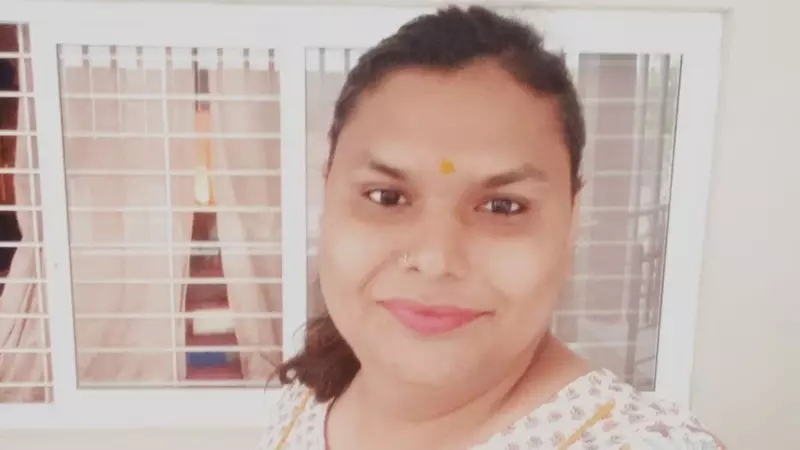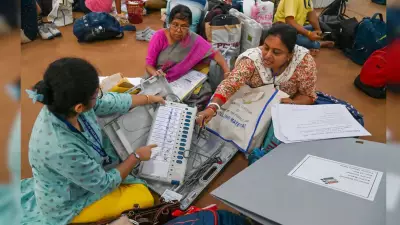
In a landmark judgment that strengthens transgender rights in India, the Supreme Court has ruled that private enterprises cannot discriminate against transgender individuals. The verdict comes in response to a petition filed by Jane Kaushik, a 32-year-old school teacher who was forced to resign from two private schools within a single year due to her gender identity.
The Struggle for Dignity and Employment
Jane Kaushik, a highly qualified educator with double master's degrees in political science and English, faced systematic discrimination while pursuing her teaching career. Between 2022 and 2023, she was forced to resign from two private schools - one in Uttar Pradesh and another in Gujarat - solely because she identified as a transgender woman.
"If I hadn't been forced to quit, I would have earned lakhs by now," Jane expressed her disappointment to The Indian Express. Despite the Supreme Court's October 17 verdict ordering both schools and state governments to compensate her with Rs 50,000 each (totaling Rs 2 lakh), Jane feels the amount is insufficient. "This is not enough money to keep me afloat. If you want to teach the school or the government a lesson, you should have at least made them pay," she stated.
Supreme Court's Watershed Judgment
The Division Bench's ruling represents a significant advancement for transgender rights in the workplace. Beyond the compensation, the court appointed an advisory committee to assess implementation of the Transgender Persons (Protection of Rights) Act, 2019 and its corresponding Rules from 2020. The committee includes prominent trans women activists like Grace Banu and Akkai Padmashali.
The Bench also recommended that "a viable equal opportunity policy should be introduced by the Union and state governments" within three months of draft policy submission. For establishments lacking their own guidelines, the Centre's policy will become enforceable.
Legal experts have hailed the judgment as transformative. "It's a powerful verdict. It gives a framework for the execution of rights guaranteed. It is a watershed judgment in many ways - it's like Vishaka vs State of Rajasthan," said Dipika Jain, executive director of Centre for Justice, Law and Society at O P Jindal Global University, who worked as Jane's legal advisor.
Personal Cost of Discrimination
Jane's professional struggles had devastating personal consequences. After coming out to her family in 2018, she initially received support from her parents and two younger siblings through her transition and gender reassignment surgeries. However, when job applications to three-four schools resulted in either complete silence, rejection, or offers conditional on hiding her gender identity, her inability to contribute to family expenses soured relationships at home.
"Because of the relentless discrimination and consequent unemployment, my family regretted supporting me in my coming out journey as a trans woman," Jane revealed. "I have not seen my family in almost three years."
Her situation became so dire that she had to leave home and "lived on the street, even resorted to begging and sex work" to survive. Currently teaching at a private boarding school in Hyderabad, Jane has had to conceal her gender identity as a precondition for employment. "I want to work in Delhi-NCR, but had to travel across the country to secure a job. I am more than qualified for this job, but I joined the Hyderabad school because it was the only one ready to take me."
The Road Ahead for Transgender Rights
Despite the legal victory, Jane remains concerned about systemic barriers. She points to bureaucratic and political unwillingness that creates bottlenecks for community acceptance. "Unless the political class engages with the community, nothing can be accomplished. Delhi didn't even have a transgender welfare board. Where are the grievance redressal mechanisms within the CBSE?" she questions.
Trans activist Grace Banu emphasizes the need for horizontal reservation: "We need horizontal reservation cutting across all caste-based reservation categories. Trans people come from all communities and deserve to ask their government for their rights. If the public sector employs and educates us, it's only a matter of time before private bodies also accept us."
Jane's case builds upon the foundation laid by the National Legal Services Authority vs Union of India (NALSA) judgment in 2014, which legally recognized trans people as the third gender and affirmed their constitutional rights. While states like Karnataka, Madhya Pradesh, and Odisha have implemented some form of reservation for the community, and High Courts in West Bengal, Delhi, and Kerala have issued directives for NALSA-guaranteed reservation, implementation remains inconsistent.
For now, Jane continues her teaching job in Hyderabad while dreaming of further education and a government position. "I want to keep studying, get my PhD and prepare for UGC-NET to become a professor. Getting a government job is one of my dreams," she says, representing the aspirations of countless transgender individuals across India seeking equal opportunity and dignity.





